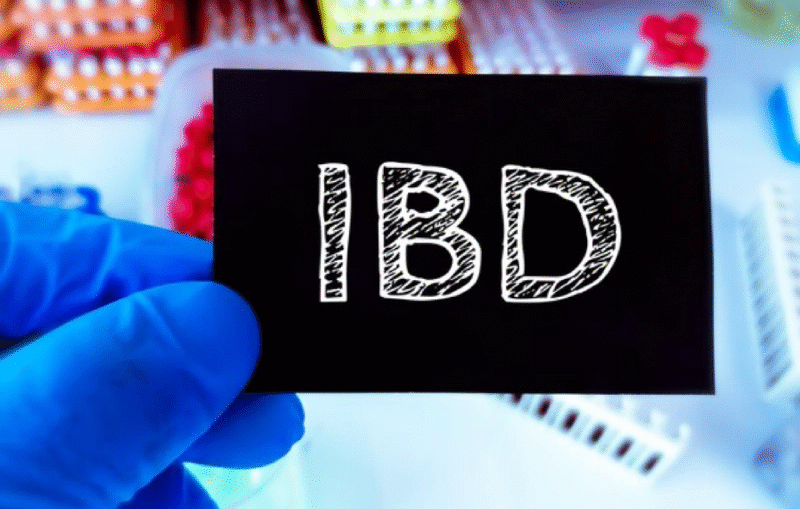When discussing gastrointestinal disorders, two commonly confused conditions are Irritable Bowel Syndrome (IBS) and Inflammatory Bowel Disease (IBD). Despite sharing several symptoms, these disorders differ significantly in causes, diagnosis, treatment, and long-term health implications. Understanding the critical distinctions between the two is essential for effective management and proper medical intervention.
What is IBS (Irritable Bowel Syndrome)?
Irritable Bowel Syndrome (IBS) is a functional gastrointestinal disorder, which means it is characterized by a group of symptoms that occur together without visible structural or biochemical abnormalities in the digestive tract.
People with IBS often experience:
-
Abdominal pain or cramping
-
Bloating and gas
-
Diarrhea, constipation, or both (alternating)
-
Mucus in stool
-
Urgent bowel movements
IBS is non-inflammatory and non-progressive, meaning it does not cause damage to the intestines, nor does it lead to more serious diseases like colon cancer.
What is IBD (Inflammatory Bowel Disease)?
In contrast, Inflammatory Bowel Disease (IBD) is an umbrella term for chronic, inflammatory conditions of the gastrointestinal tract. The two main types of IBD are:
-
Crohn’s Disease – which can affect any part of the gastrointestinal tract from mouth to anus, often in patches.
-
Ulcerative Colitis – which affects only the colon and rectum, typically in a continuous stretch.
Symptoms of IBD may include:
-
Severe abdominal pain
-
Chronic diarrhea, often with blood or pus
-
Weight loss and malnutrition
-
Fatigue and fever
-
Rectal bleeding
IBD is autoimmune and progressive, potentially causing permanent damage to the digestive tract and increasing the risk of colon cancer.
IBS vs. IBD: Causes and Risk Factors
Causes of IBS
The precise cause of IBS remains unclear, but contributing factors include:
-
Gut-brain interaction dysfunction
-
Abnormal gastrointestinal motility
-
Hypersensitivity in the intestines
-
Post-infectious inflammation
-
Psychological stress
-
Changes in gut microbiota
There is no visible inflammation or tissue damage, and IBS is typically diagnosed based on Rome IV criteria, focusing on symptom patterns over time.
Causes of IBD
IBD, on the other hand, is believed to result from:
-
An abnormal immune response attacking the GI tract
-
Genetic predisposition
-
Environmental triggers (e.g., smoking, diet, pollution)
-
Gut microbiome imbalance
Unlike IBS, IBD can be detected through blood tests, stool tests, endoscopic procedures, and imaging that reveal inflammation, ulcers, and intestinal damage.
Key Differences in Symptoms
| Symptom | IBS | IBD |
|---|---|---|
| Abdominal pain | Common, relieved by bowel movements | Common, often more intense |
| Diarrhea | Yes, often without blood | Yes, usually with blood or mucus |
| Constipation | Yes | Occasionally |
| Rectal bleeding | No | Yes |
| Fever and weight loss | No | Yes |
| Fatigue | Sometimes | Often |
| Inflammation seen on scopes | No | Yes |
Diagnosis: How IBS and IBD Are Identified
Diagnosing IBS
There are no specific tests to diagnose IBS. It is a diagnosis of exclusion, meaning doctors rule out other conditions first. Diagnostic steps include:
-
Review of medical history and symptoms
-
Rome IV criteria application
-
Basic lab work and stool studies
-
Colonoscopy if red flags exist (weight loss, anemia, etc.)
Diagnosing IBD
IBD requires a thorough medical evaluation, including:
-
Blood tests (to detect anemia or inflammation)
-
Stool tests (to detect calprotectin or lactoferrin)
-
Endoscopy and colonoscopy
-
Biopsy of intestinal tissue
-
MRI or CT scan
The presence of chronic inflammation, ulcers, strictures, and granulomas are hallmark features of IBD.
Treatment Options: Managing IBS and IBD
Treating IBS
IBS is managed by addressing symptoms and improving quality of life through:
-
Dietary changes (e.g., low FODMAP diet)
-
Fiber supplementation
-
Probiotics
-
Antispasmodics
-
Laxatives or anti-diarrheal medications
-
Cognitive Behavioral Therapy (CBT) and stress management
Treating IBD
IBD treatment focuses on reducing inflammation and achieving remission:
-
Anti-inflammatory medications (e.g., mesalamine)
-
Immunosuppressants (e.g., azathioprine)
-
Biologic therapies (e.g., anti-TNF agents)
-
Steroids during flares
-
Surgery for complications (e.g., bowel obstruction, fistulas)
-
Nutritional support due to malabsorption
Long-term management requires regular monitoring, and in some severe cases, surgical resection of diseased intestinal sections may be necessary.
Prognosis and Long-Term Outcomes
IBS Prognosis
-
IBS is non-life-threatening
-
It does not cause permanent damage
-
Symptoms may fluctuate with stress and diet
-
It does not increase the risk of colon cancer
-
With lifestyle and dietary changes, many people achieve significant symptom relief
IBD Prognosis
-
IBD is chronic and may worsen over time
-
Complications include strictures, fistulas, abscesses, and increased cancer risk
-
May require multiple hospitalizations or surgeries
-
Requires lifelong medical care and monitoring
-
Advances in biologic treatments have significantly improved long-term outcomes
Mental Health Connection
Both IBS and IBD are strongly connected to mental health. Anxiety and depression are common in IBS due to the gut-brain axis dysfunction. In IBD, the chronic nature of the disease and flare-ups can take a toll on emotional well-being. Integrated care, including therapy and stress management techniques, is crucial in managing both conditions effectively.
Diet and Lifestyle: Essential Management Tools
IBS-Friendly Strategies
-
Follow a low FODMAP diet
-
Avoid trigger foods (e.g., caffeine, alcohol, spicy food)
-
Eat smaller, more frequent meals
-
Increase fiber intake for IBS-C
-
Practice mindfulness and relaxation
IBD Nutrition Tips
-
During flares, eat low-residue or bland foods
-
Avoid dairy if lactose intolerant
-
Supplement with iron, B12, vitamin D, calcium
-
Avoid foods that exacerbate symptoms like raw vegetables, nuts, and high-fat items
-
Maintain a balanced, anti-inflammatory diet during remission
Final Thoughts
Though IBS and IBD share some superficial similarities, they are fundamentally different in terms of pathophysiology, diagnosis, treatment, and long-term health impact. Understanding the differences can empower individuals to seek the right medical advice and adopt lifestyle changes that offer lasting relief. Early diagnosis and proper management are key to maintaining a high quality of life, regardless of which condition one faces.






